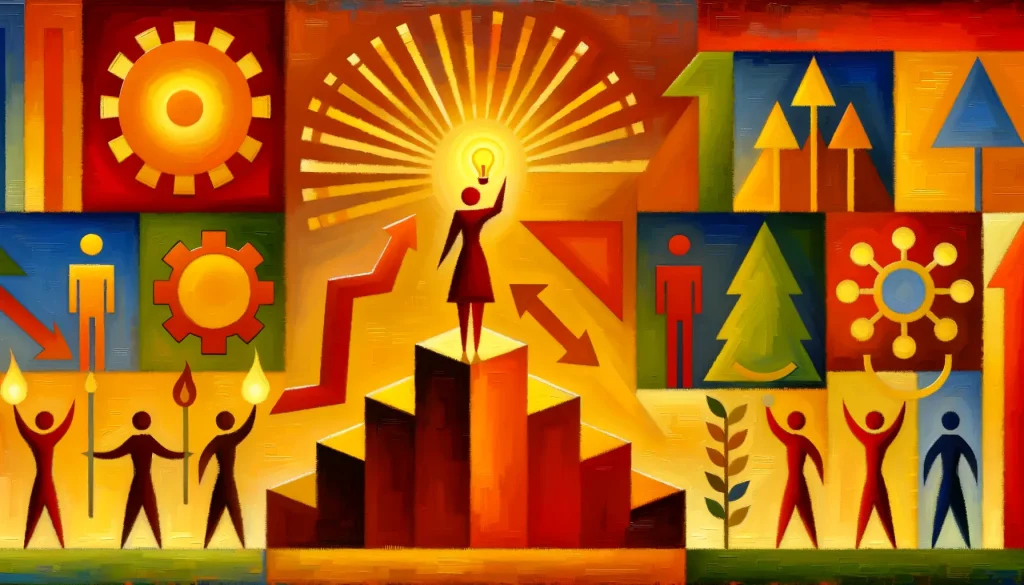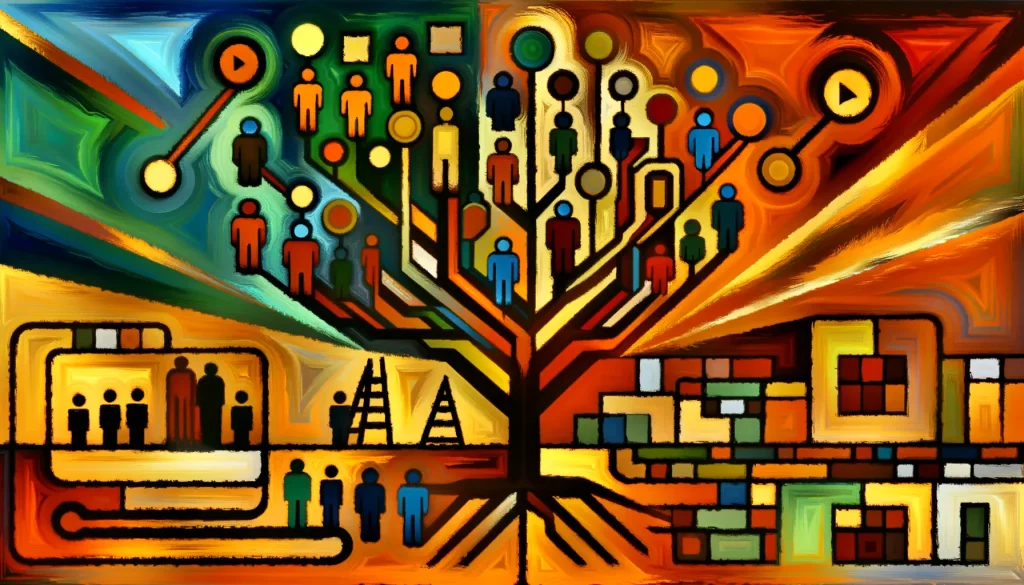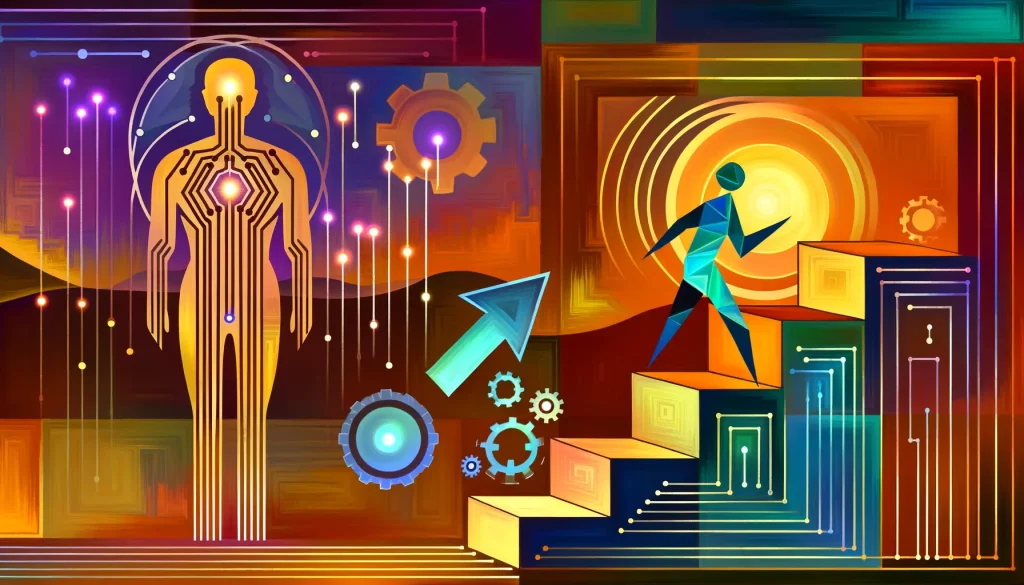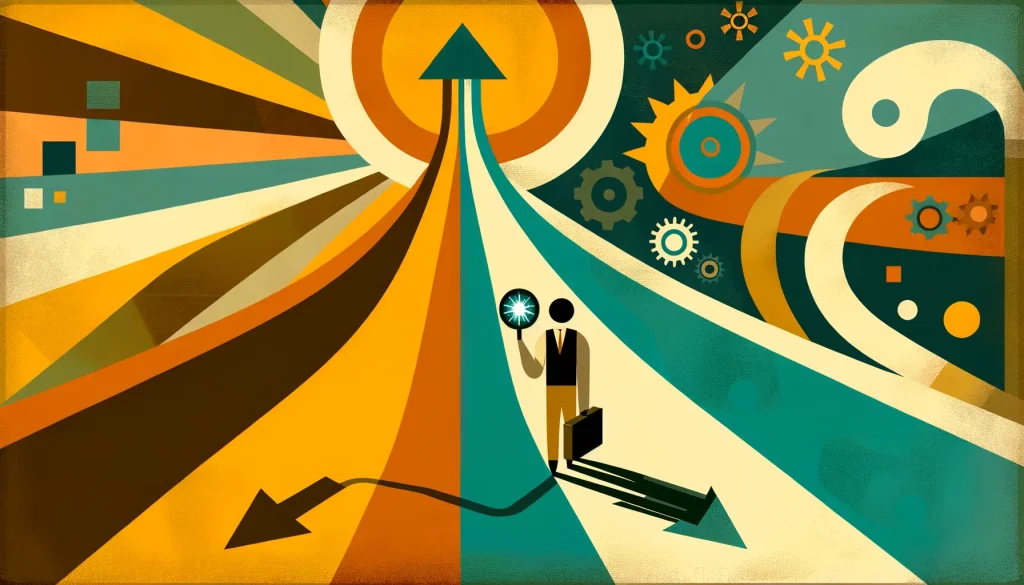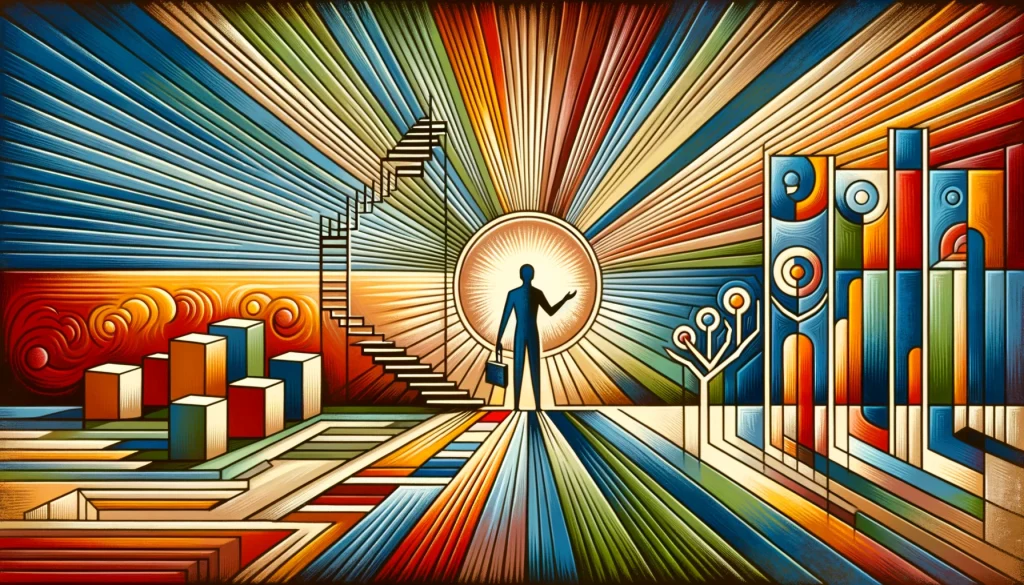The Rise of AI-Human Collaboration
Have you noticed how AI is becoming less of a buzzword and more of a colleague? By 2025, we're going to see AI assistants that don't just schedule meetings but actually contribute meaningful work to your team.
"I remember when we first introduced AI tools in our marketing department," says Maria Chen, CMO at TechForward. "There was so much resistance. Now? My team fights over who gets to work with our AI content assistant because it's freed them to be more creative."
The key isn't just implementing AI, but developing the right skills to work alongside it:
- Prompt engineering – communicating effectively with AI systems
- AI output evaluation – knowing when to trust and when to verify
- Ethical oversight – ensuring AI use aligns with human values
Not everyone's thrilled about this shift, though. As Lucas from manufacturing points out, "We need clear boundaries. Who's responsible when an AI makes a recommendation that leads to a mistake? These are questions we're still figuring out."
Evolution of Remote and Hybrid Work Models
Remember when the pandemic forced everyone home overnight? Well, the pendulum has settled somewhere in the middle, and by 2025, we'll see sophisticated hybrid models that actually work.
"Our company tried bringing everyone back to the office full-time in 2023," shares Priya, an HR director. "It was a disaster for retention. Now we have neighborhood-based hubs where teams can meet twice a week, with remote work the rest of the time. Productivity is up 23%!"
The hybrid workplace revolution includes:
- Team "in-office" days designed around collaborative projects
- Virtual reality meeting spaces for dispersed teams
- Cultural rituals that work for both in-person and remote employees
- "Digital-first" documentation practices
Geographic hiring has completely transformed as well. Companies are now creating "talent clusters" in unexpected places rather than requiring relocation. As one startup founder told me, "We've got engineering teams in rural Michigan, marketing in Barcelona, and customer support in New Zealand. The talent pool is literally global now."
Skills-Based Economy Takes Center Stage
The four-year degree is no longer the golden ticket it once was. By 2025, what you can do will matter far more than where you learned to do it.
"I never finished college," says Jordan, a blockchain security specialist earning over $200K annually. "I have twelve certifications instead, and I update them quarterly. Traditional education simply couldn't keep pace with my field."
This shift is happening across industries:
- Companies like Google, Apple, and IBM have dropped degree requirements for many roles
- Professional networking platforms now highlight skills and endorsements above education
- Learning platforms offer "just-in-time" training for specific workplace challenges
- Micro-credentials allow workers to stack specific skills into customized career paths
The most successful organizations are creating internal skills marketplaces where employees can easily shift between projects based on capabilities rather than job titles. "We've eliminated most traditional promotions," explains one innovation executive. "Instead, our people gain access to more complex and higher-paid projects as they level up specific skills."
Mental Health and Wellbeing at Work
Remember when "bringing your whole self to work" was just a catchy phrase? By 2025, mental wellbeing isn't just supported—it's strategically prioritized.
"Our company used to pride itself on hustle culture," admits Derek, a tech executive. "Now we track mental health metrics with the same rigor as financial ones. Turns out, they're directly connected."
Leading organizations are implementing:
- Mental health days that don't count against sick leave
- Mindfulness practices integrated into the workday
- Manager training specifically for recognizing burnout signs
- On-demand therapy and coaching benefits
The concept of work-life balance has evolved into work-life integration, with companies supporting employees to design workdays that accommodate personal priorities alongside professional ones.
"I block two hours every Wednesday afternoon to volunteer at my daughter's school," says Kareem, a project manager. "My company not only allows it but celebrates it as part of our community engagement values."
Sustainable and Purpose-Driven Workplaces
By 2025, environmental sustainability won't just be a nice-to-have corporate value—it'll be a business imperative demanded by employees, customers, and regulators alike.
"Candidates now ask detailed questions about our carbon footprint during interviews," reports a talent acquisition director. "They're choosing employers based on environmental commitments."
This focus appears in multiple ways:
- Office designs that prioritize renewable energy and natural materials
- Business travel policies that limit unnecessary flights
- Supplier requirements for sustainable practices
- Employee-led environmental initiatives with executive sponsorship
Beyond environmental concerns, purpose has become central to workplace culture. "Our quarterly impact reports generate more employee engagement than any other communication," notes one corporate communications leader. "People want to see how their daily work connects to something meaningful."
The Gig Economy Evolution
The gig economy of 2025 looks dramatically different from its early days, with freelance work becoming more stable and structured while maintaining flexibility.
"I used to juggle seven clients to make ends meet," says Elena, a freelance operations consultant. "Now I have three long-term contracts with benefits that rival traditional employment, but I still set my own hours."
Key developments include:
- Portable benefits systems that follow workers between gigs
- Freelancer collectives that provide community and shared resources
- Platform cooperatives owned by the workers themselves
- Client rating systems that protect freelancers from problematic employers
Traditional companies are incorporating gig arrangements into their workforce strategy as well. "About 30% of our workforce is now project-based contractors," explains one operations executive. "But we invest in their development and offer paths to regular employment for those who want it."
Technology-Enhanced Employee Experience
The workplace technology of 2025 goes far beyond productivity tools to create truly personalized work experiences.
"My workstation recognizes me when I arrive," describes Amir, a financial analyst. "It adjusts the lighting and temperature to my preferences, queues up my priority tasks, and even reminds me to stand up throughout the day based on my health goals."
This personalization extends across the employee journey:
- VR onboarding experiences that immerse new hires in company culture
- Augmented reality displays that provide real-time coaching during complex tasks
- AI-powered career development recommendations
- Customized learning experiences based on working style and interests
Of course, all this personalization raises important privacy questions. "We had to establish clear data boundaries," admits one chief information officer. "Employees can opt in or out of different tracking features, and all wellness data is aggregated rather than individual."
Conclusion
The future of work in 2025 presents exciting opportunities for growth and innovation. By embracing these trends and preparing for change, organizations and individuals can thrive in the evolving workplace landscape. Remember, the key to success isn't just adapting to these changes, but actively shaping them to create better work experiences for everyone. Ready to start preparing for the future? The time to act is now!

